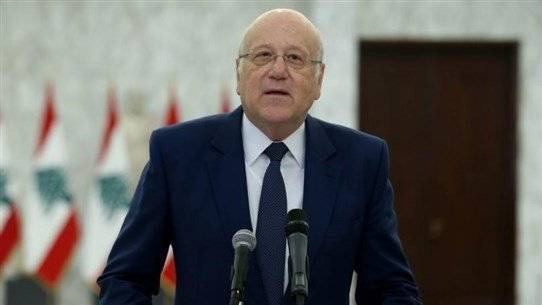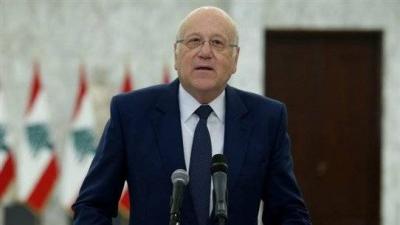As the end of President Michel Aoun's term approaches on October 31, many rumors, analyses, media leaks, and questions have arisen regarding whether Aoun will leave his residence in Baabda. Some are comparing the current situation to that of 1988, when Aoun served as head of the military government after the end of President Amin Gemayel's term and the failure to elect a new president. At that time, Aoun remained in office for more than two years, although nominally, as he was besieged in Baabda until the international cover for the Syrian-Lebanese action was solidified on October 13, 1990, marking the start of the Taif Agreement era.
However, today's circumstances differ significantly, as close associates of Baabda argue. In 1988, Aoun was the legitimate prime minister in the eastern region, opposing Salim Al-Hoss, the actual prime minister in the western region, whereas it is not comparable today to a political reality that Aoun wishes to escape from. Thus, Aoun's continued presence in Baabda is not realistic; he will not remain even for a single minute after October 31 and might leave the palace well before the end of his term. According to a close aide to the presidency, all these legal opinions are fabricated aimed at misleading and "harassing" the president, who has categorically denied this issue multiple times, asserting that he will leave after his term ends and cannot continue to deny it whenever someone launches media attacks against him on this point.
Why the interest in government formation now? In political terms, the components for extension do not exist, just as there is no intention for it, along with a lack of clear constitutional text for it. The president's focus is on two matters: the first is to form a government as quickly as possible that gains the confidence of the parliament to tackle the challenges posed by the current economic, social, and financial stage while also addressing the border demarcation issue swiftly. The second is to facilitate and encourage the election of a new president during the constitutional period, as the country cannot afford a vacuum. Notably, the current vacuum situation does not resemble the last one in 2014, as Lebanon is mired in its largest economic crisis since its establishment.
Some point out that the "sudden awakening" of Prime Minister Najib Mikati indicates that an external signal for government formation has reached him, possibly in anticipation of a vacancy in the presidency. They suggest that the lack of an active government would lead to the absence of an internal authority capable of managing indirect negotiations with the Israeli enemy and the border demarcation process, which could delay the demarcation indefinitely—a situation that concerns many both domestically and internationally.
Another critical issue is the negotiations with the International Monetary Fund (IMF). If there is no internal authority capable of accompanying the negotiations, the IMF may withdraw from talks, leading to a severe escalation of the situation, especially considering the persistent fluctuations of the national currency and the accumulation of social, service, financial, economic, and national crises. "This explains Mikati's awakening, and this signal may also have come from the Shiite duo, Hezbollah and the Amal Movement, which has always supported and covered for Mikati. The recent speech of Hezbollah Secretary-General Hassan Nasrallah was clear and unprecedented in its direct call for the formation of a government."
They also point to European, especially French, and American signals for government formation to safeguard against presidential vacancy, given the need for an internal reference to address the issue of Syrian refugees. However, this requires adherence to unified standards in the formation process without seasonal and winter preferences under the same roof and without selectivity in dealing with blocs and sects to ensure the proposed composition is acceptable to the president to issue the formation decree, according to this perspective.
Basil Retains the Veto
On the side of President Aoun, there appears to be no concern about the developments before the end of his presidential term in the coming weeks. Regarding the head of the Free Patriotic Movement, Gibran Bassil, his chances in politics are not impossible, but he is currently engaged in the presidential battle in terms of the profile and identity of the next president. Close associates indicate that there are two possibilities: either a president from the two major Christian blocs, namely the "Strong Lebanon" bloc (the Free Patriotic Movement) or the "Lebanese Forces," supported by one or both. There is no other solution!
This is a long-term perspective on the upcoming challenge, with some affirming that despite the animosity between them and the current inability to agree on a candidate, both may agree to prevent a candidate like Sleiman Frangieh, head of the Marada Movement, from reaching the presidency. They affirm that no candidate will reach the presidency without Bassil's approval, who retains the veto even if pressured by Hezbollah, which has not made a commitment regarding Frangieh, unlike the commitment made to Aoun previously.
It is noteworthy that Samir Geagea, head of the Lebanese Forces, has significantly raised the stakes by going for a confrontation candidate, with opponents suggesting he did so because he did not receive external support, specifically from Saudi Arabia, for his candidacy. Meanwhile, others suggest that this raised stance is due to a future settlement on a candidate not affiliated with Hezbollah or the axis of resistance.
As for Bassil, he currently rejects Frangieh, unless new facts emerge indicating that this nomination comes with equations, objectives, programs, and balances in governance that lead to achieving economic, administrative, social, and financial reforms in the country, while also strengthening the Christian role in power to ensure the best form of Christian-Islamic balance. In other words, Frangieh's chances are currently very slim regarding approval from Aoun and Bassil, who would essentially be shooting themselves in the foot if they proceeded to endorse Frangieh while imposing Aounist conditions on him.
If either of the two major Christian blocs supports a specific candidate, he would then gain Christian legitimacy, even if only temporarily. As for the prospects of Joseph Aoun, commander of the army, he is rejected by the presidency and would require a constitutional amendment because he must either complete his term or resign two years prior and be out of work before being elected, meaning that the presidency absolutely does not accept any constitutional views allowing Joseph Aoun to succeed after the end of the presidential term on October 31, including the opinion of constitutional expert Bahij Tabara.




